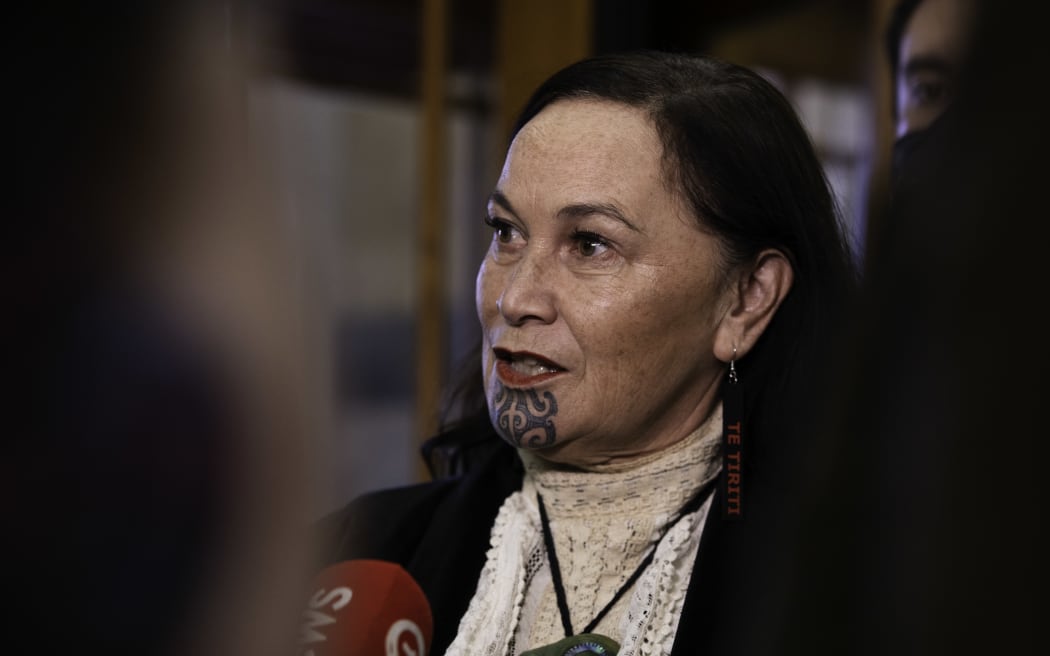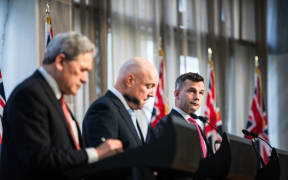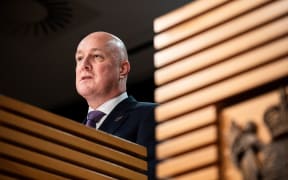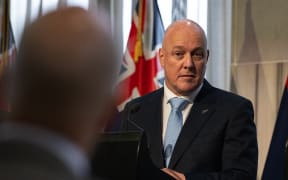
Photo: RNZ / Angus Dreaver
Te Pāti Māori's co-leader Debbie Ngarewa-Packer has accused the new government of "deliberate .. systemic genocide" over its policies to roll back the smokefree policy and the Māori Health Authority.
Prime Minister Christopher Luxon says the comments are not helpful from a political leader, and the move to repeal is just a return to the status quo.
National's coalition agreement with New Zealand First, unveiled last week, included a promise to repeal the amendments to the Smokefree legislation.
This would have required lower nicotine levels in cigarettes, put a ban on people below a certain age from legally being able to buy cigarettes - with the age rising each year, creating a smokefree generation - and limited the number of retail outlets to 600 nationwide.
The government plans to shut that down - confirming today doing so would be part of its first-100-days plan - and instead increase tobacco excise tax.
The reversal has been criticised by health leaders and politicians as a backward step, but Ngarewa-Packer took her criticism much further than that.
"There is absolute deliberate intention of this government, as I said, to create systemic genocide," she told RNZ.
"They want to lock us away and with this smoking turnaround they want to kill us away. And they're committed to erasing us as tangata whenua, it's not a cancel culture that we've heard New Zealand First talk about, it's an end of our culture that they're intentional to doing."
She said the plan from all three parties to abolish the Māori Health Authority meant the government was both continuing the problem and removing the solution.
"For 150-plus years no health system has been able to address the growing inequities of Māori, we come up with a unique, well thought out, futuristic model. It's not perfect ... but it is a solution that is addressing inequities that only Māori confront.
"So not only are they wanting to gear up the industry and sector that affects Māori more than anyone else, they also want to take away the solution that was brought in.
"They're providing no solutions, they just want to continue to build tax cuts for the rich built off the misery of their tangata whenua."
Luxon, speaking at his first post-Cabinet briefing on Wednesday afternoon, said it was a difference of opinion.
"I just don't think those comments are helpful whatsoever from a political leader in New Zealand. Let's be clear about it, we have a difference of opinion with the [previous] government and what they proposed before the election, and we don't think that will work.
"You may disagree with that but that's our point of view that we don't think those measures or those component parts are the right way to go about it."
Asked how the government could deliver better health outcomes for Māori, he said the way it had been presented has been disingenuous.
"Smoking rates have come down under successive governments, and they'll continue to come down under our government," he said. "All the parties under our coalition actually opposed that legislation or components of that legislation - we think it's wrong for example to have a single store in Northland as a target for crime and for ram raids and for gangs and to ultimately drive for a bigger black market.
"We are not unwinding smoking legislation, we're just sticking with the status quo and we'll continue to drive smoking rates down.
College of Public Health Medicine president Sir Collin Tukuitonga has said the reversal of the smokefree amendments would result in about 1000 extra deaths over the next decade, mostly Māori, and cost the health system $1.3 billion.
However, the changes - including the increase in excise - will mean more funding in the government's coffers in the medium term.
Luxon rejected the suggestion the government was putting profits before people, and said the government would work to continue to reduce smoking rates.
"Our message is to not smoke, our message is we want to see smoking continuing to decline as it has over the last 30 years over successive governments.
"In fairness, we've been in power for ... what, two days, and we need to be able to get a chance for Shane [Reti, the Health Minister] and other people to actually get their feet under the desk and work out what is a good goal for us to strive for."
The Smokefree 2025 goal was brought in by the National-led government in 2011 after a report by the Māori Affairs Committee.





